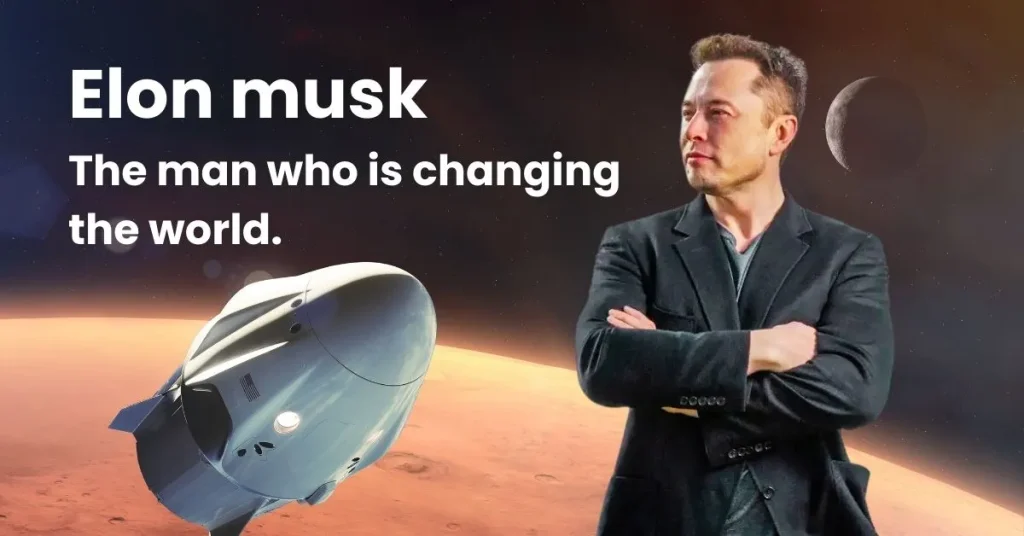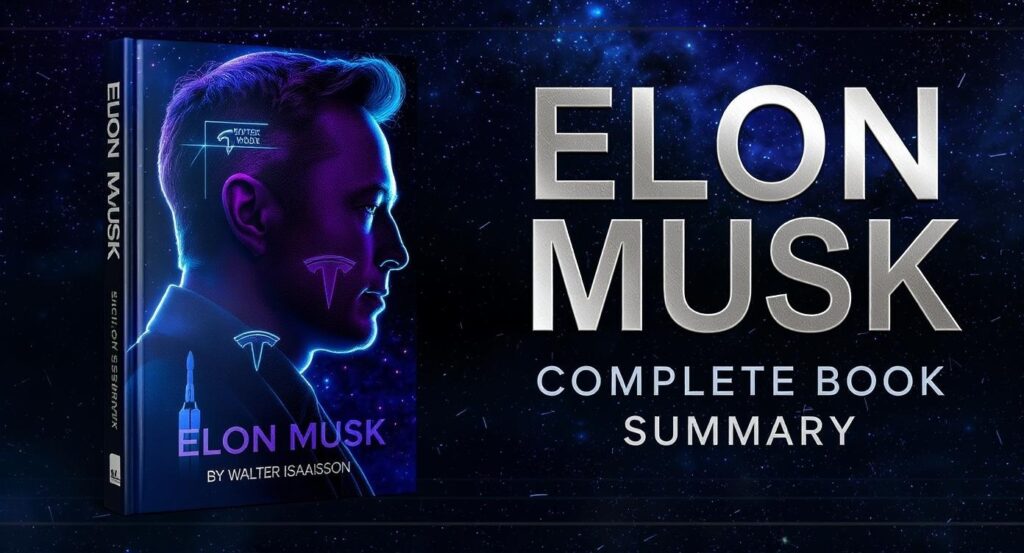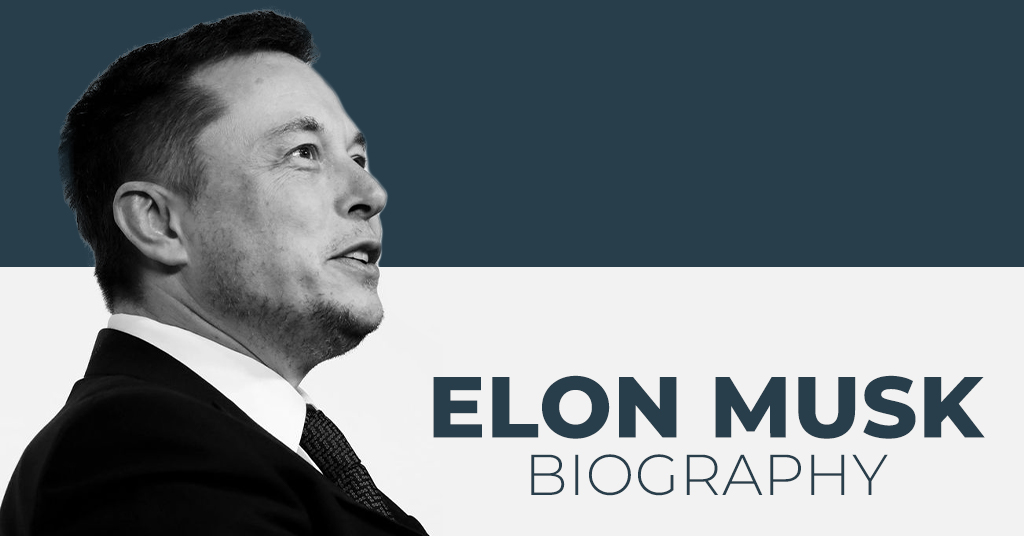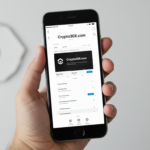Introduction
Elon Musk, a name that echoes through the worlds of innovation, technology, and entrepreneurship, has redefined what it means to push boundaries. From revolutionizing online payments to launching reusable rockets and building electric cars that changed an entire industry, Musk has proven himself to be more than just a businessman—he’s a visionary with a mission to reshape the future of humanity.
This biography explores Elon Musk’s life journey: from a curious boy in South Africa to the CEO of companies like Tesla, SpaceX, and Neuralink. It covers his failures, his successes, and the bold ideas that continue to shape the world.
1. Elon Musk Biography: Early Life and Background
Elon Reeve Musk was born on June 28, 1971, in Pretoria, South Africa. His mother, Maye Musk, was a model and dietitian, while his father, Errol Musk, was an engineer. From a very young age, Musk was known for his curiosity and passion for learning. He often spent hours reading science fiction novels, comic books, and encyclopedias.
At age 10, Elon taught himself computer programming. Just two years later, he developed and sold a video game called Blastar, showcasing his entrepreneurial spark early on. However, his childhood wasn’t easy. He faced frequent bullying in school and had a difficult relationship with his father. Despite this, Musk remained focused on building his knowledge and dreaming big.
2. Elon Musk Biography: Education and Academic Journey
At 17, Elon Musk moved to Canada to attend Queen’s University, leaving behind South Africa and avoiding military service. After two years, he transferred to the University of Pennsylvania, where he earned two degrees: a Bachelor of Science in Physics and a Bachelor of Arts in Economics.
While pursuing his academic goals, Musk never lost sight of his ambitions. He had plans for three main areas: the internet, space, and renewable energy. These would later become the cornerstones of his most famous companies.
In 1995, Musk enrolled in a PhD program at Stanford University, but left after just two days. The internet boom was happening, and Musk saw more opportunity in building companies than in staying in academia.

3. Elon Musk Biography: Zip2 and PayPal – The Entrepreneurial Foundation
Musk’s first company was Zip2, founded in 1996 with his brother Kimbal. Zip2 developed online city guide software for newspapers. While it wasn’t glamorous, the software was ahead of its time. In 1999, Compaq acquired Zip2 for $307 million, and Elon received $22 million from the deal.
He quickly reinvested that money to start X.com, an online financial services and payments company. X.com later merged with a company called Confinity, and the combined firm became known as PayPal.
PayPal changed the way people send money online. In 2002, eBay acquired PayPal for $1.5 billion, and Musk made around $165 million from the sale. This financial success gave Musk the freedom to pursue his more ambitious goals—starting with space.
4. Elon Musk Biography: SpaceX and the Mission to Mars
In 2002, Musk founded SpaceX (Space Exploration Technologies Corp.), with a vision to make space travel affordable and eventually colonize Mars. Critics called it crazy. Even NASA wasn’t interested at first.
SpaceX’s first three rocket launches all failed, nearly bankrupting the company. But Musk didn’t give up. In 2008, the fourth launch of the Falcon 1 was a success, and soon after, SpaceX received a $1.6 billion contract from NASA to transport cargo to the International Space Station.
SpaceX revolutionized space travel by creating reusable rockets, cutting launch costs drastically. The Falcon 9, Dragon spacecraft, and later the Starship program demonstrated that Musk’s Mars dream was not just science fiction—it was becoming reality.
Today, SpaceX is the most successful private aerospace company in the world, sending astronauts to space and preparing for Moon and Mars missions.
5. Elon Musk Biography: Tesla and the Electric Revolution
In 2004, Musk joined Tesla Motors (now Tesla, Inc.) as an investor and later became CEO. At the time, electric vehicles (EVs) were considered slow, unattractive, and impractical. Musk wanted to prove the world wrong.
Tesla’s first car, the Roadster, shocked the world with its speed and sleek design. But the real game-changer was the Model S, a luxury electric sedan that won countless awards. Tesla later introduced the Model X, Model 3, and Model Y, covering every major market segment.
Tesla didn’t just sell cars—it sold a vision. Musk invested in Gigafactories to mass-produce batteries and promote renewable energy. Tesla also developed Autopilot, its advanced driver-assistance system, and became a leader in self-driving technology.
Despite financial struggles and media criticism, Tesla’s stock soared, making it the world’s most valuable automaker by market cap.

6. Elon Musk Biography: Neuralink and The Boring Company
Elon Musk’s innovation didn’t stop with space and cars. In 2016, he launched Neuralink, a neurotechnology company focused on developing brain-machine interfaces. The goal is to help people with neurological disorders and eventually enable humans to merge with AI.
Neuralink has already implanted chips in animals, and human trials are being prepared. Musk believes this technology could prevent AI from surpassing human intelligence dangerously.
In the same year, Musk founded The Boring Company to address urban traffic congestion. Its solution: underground tunnels for high-speed transport. The company has built test tunnels in Los Angeles and launched a commercial loop in Las Vegas, moving passengers in Tesla vehicles underground.
7. Elon Musk Biography: Leadership Style and Public Perception
Elon Musk is known for his relentless work ethic—often working 80 to 100 hours a week. He’s deeply involved in engineering decisions and product development at all his companies.
But Musk’s leadership style is not without controversy. He’s known to be demanding, impatient, and sometimes blunt on social media. His tweets have affected stock prices, sparked lawsuits, and created global headlines.
Still, many admire him for his transparency, risk-taking, and willingness to speak openly about his missions—even when it costs him short-term popularity.
8. Elon Musk Biography: Philanthropy and Global Impact
Though often seen as a businessman, Musk is also a philanthropist. He signed the Giving Pledge, promising to donate the majority of his wealth. He has funded projects in education, clean energy, AI safety, and COVID-19 research.
In 2021, he donated $5.7 billion worth of Tesla shares, though most of the recipients remained undisclosed. Musk also supports OpenAI, the company that created ChatGPT, with the goal of keeping artificial intelligence beneficial for humanity.
9. Elon Musk Biography: Future Vision and Legacy
Musk’s vision extends far beyond profits or headlines. He wants to:
- Make life multi-planetary (Mars colonization)
- Accelerate sustainable energy
- Prevent dangerous AI
- Enhance human potential via brain-computer tech
Whether or not all his goals are achieved, Elon Musk has already left a mark on the world that will last generations.

Conclusion: Lessons from the Life of Elon Musk
Elon Musk’s biography is not just a story of success—it’s a blueprint for daring to dream big. From humble beginnings in South Africa to becoming one of the world’s most powerful innovators, Musk has shown what’s possible when passion meets perseverance.
He has reimagined transportation, pushed boundaries in space, and challenged what technology can do for humanity. Love him or hate him, one thing is certain: Elon Musk is transforming the future—and we’re all watching it happen.







